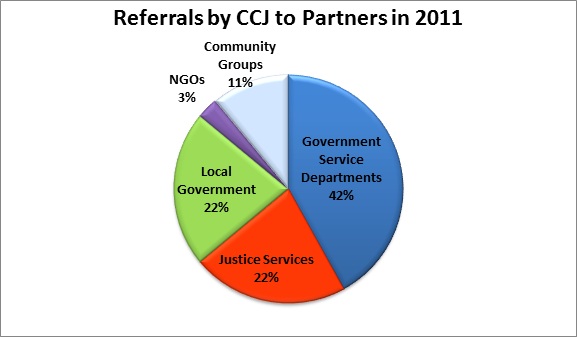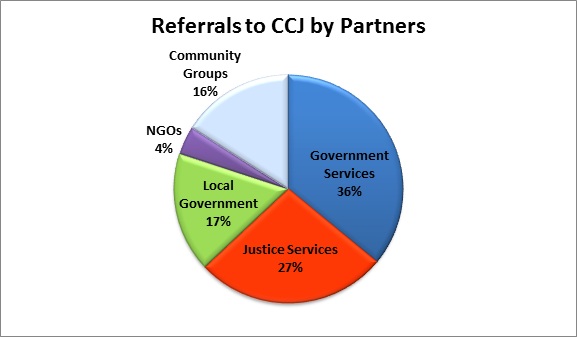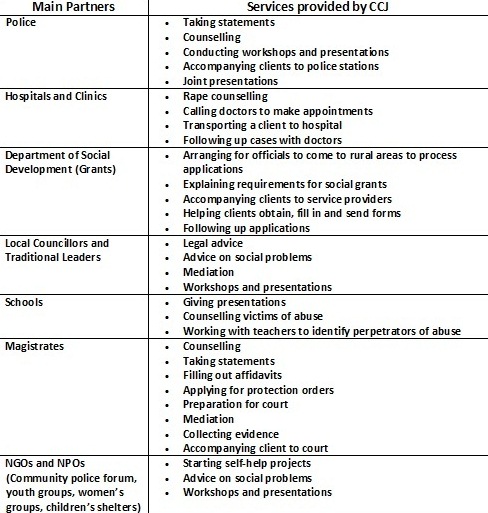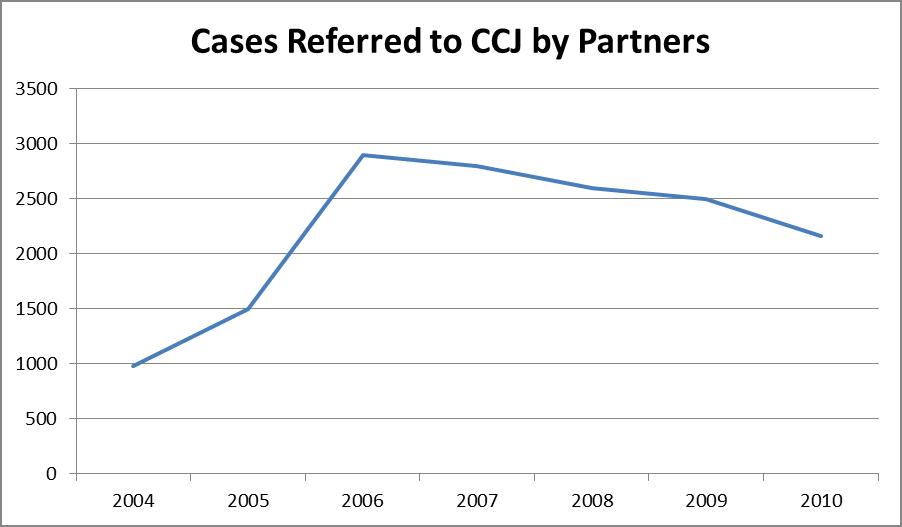 When trying to help clients, CCJ needs the assistance of organisations that have different knowledge and skills. Coordinators have therefore established links with institutions that provide legal and social services, and the relationships that have been developed mean clients' problems receive a quicker response. Coordinators refer clients to government departments and private organisations to obtain grants and other payments and services, monitoring and supporting the progress of these cases and holding service providers to account. They accompany clients who need help in dealing with officials. Coordinators advise and support those who wish to use the formal legal system rather than mediation, working closely with police, court officers and magistrates.
When trying to help clients, CCJ needs the assistance of organisations that have different knowledge and skills. Coordinators have therefore established links with institutions that provide legal and social services, and the relationships that have been developed mean clients' problems receive a quicker response. Coordinators refer clients to government departments and private organisations to obtain grants and other payments and services, monitoring and supporting the progress of these cases and holding service providers to account. They accompany clients who need help in dealing with officials. Coordinators advise and support those who wish to use the formal legal system rather than mediation, working closely with police, court officers and magistrates.
In 2011, the support centres referred 1548 cases (27%) to other service providers, with the police, hospitals and social welfare the most frequent partners. Many of these referrals were followed by negotiations with service providers on behalf of a client, and by monitoring of the service given.
Support centres also receive referrals from partners, the most common being t he police, social welfare, health clinics and traditional leaders. 2157 cases in 2011 (38%) were referred by partners to the support centres, and this cooperation indicates the faith that these institutions have in the centres. The remaining clients came through word of mouth recommendations.
he police, social welfare, health clinics and traditional leaders. 2157 cases in 2011 (38%) were referred by partners to the support centres, and this cooperation indicates the faith that these institutions have in the centres. The remaining clients came through word of mouth recommendations.
Working relationships between CCJ and important partners have grown steadily over the years. This is because coordinators give presentations in schools and community forums, conduct focus groups and regularly attend meetings organised by partners within the community, providing input to discussions based on concerns that arise during focus groups and presentations.
Referrals have increased markedly from under a thousand in 2004, to 2000-3000 annually since 2006. (See graph below )
)
